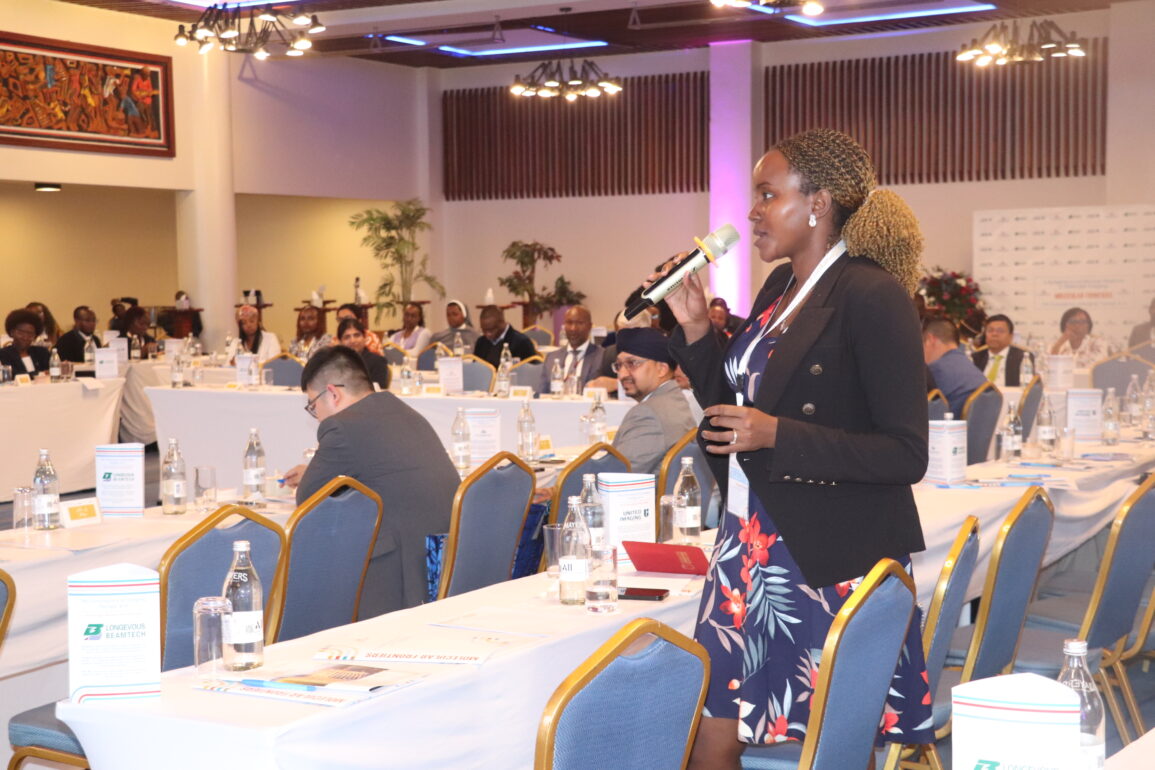Even as brain drain continues to cripple Kenya’s ambitions in nuclear medicine, researchers and policymakers say the country has a chance to leap forward in cancer care by embracing digital twins and theranostics powered by artificial intelligence.
At the Molecular Frontiers Symposium held on June 5 at the Mövenpick Hotel in Nairobi, Kenya, experts warned that while cutting-edge technologies such as PET scans, radiopharmaceuticals, and AI-driven diagnostics could revolutionize oncology, the flight of skilled nuclear medicine professionals threatens to stall progress.
“We must reverse the brain drain and create a system of brain circulation,” said Prof Abdulrazak Shaukat, Principal Secretary in the State Department for Science, Technology and Innovation. “Our experts must not just train abroad but return to build our health systems.”
Prof Shaukat called for a national strategy to invest in training, local isotope production, and inclusive innovation, noting that 60% of the global population—mostly in low-income countries—still lacks access to nuclear medicine. “More than 4.7 billion people lack access to essential nuclear medicine services,” he said. “In many low-resource regions, there are fewer than 0.01 nuclear medicine physicians per million people compared to over three in high-income countries.”
The symposium, themed “Molecular Frontiers: The Convergence of Imaging, Therapy and AI,” brought together scientists, clinicians, and innovators from around the world to explore the next frontier in cancer diagnosis and treatment. Among the highlights was the growing role of digital twins—AI-generated virtual replicas of a patient’s anatomy and tumor biology—used to simulate treatment and refine precision therapy.
“We stand at a time of a transformative era where the convergence of nuclear medicine, molecular imaging, and AI is not merely shaping how we treat disease but defining how we understand life itself,” said Prof Shaukat in his keynote speech.
A key focus was on theranostics—combining diagnostics and therapy using radiopharmaceuticals like Lutetium-177. Prof Shaukat cited promising clinical outcomes from South Africa, where patients with advanced prostate cancer have responded positively to PSMA-based therapies.
“Imagine a world where a simple scan can reveal disease in infancy, where therapy targets cancer cells with laser precision, sparing healthy tissues entirely. This is not science fiction. This is the promise of theranostics,” he said.
Prof Shaukat praised local capacity such as cyclotrons and reactors in Kenya and the availability of isotopes like Lutetium-177 at the Aga Khan University Hospital, but stressed that infrastructure alone is not enough. He announced renewed partnerships with the International Atomic Energy Agency (IAEA), which commits 60% of its technical cooperation budget to building capacity in developing countries.
Crucially, he stressed that AI will be essential to unlocking the full potential of molecular imaging. “Each scan generates immense amounts of data. Artificial intelligence will help us integrate patient-specific variables—tumor volumes, organ functions, previous treatments—towards more precise, personalized care,” Prof Shaukat said.
At the center of Kenya’s nuclear medicine drive is the digital PET scan system at Nairobi West Hospital, which now produces its own radioactive tracers via an in-house cyclotron. The hospital is among the few in East Africa offering this advanced capability.
“With the PET scan now powered by our own cyclotron, we’ve moved from relying on external sources to fully localized production. This gives us a level of independence and immediacy in patient care that we didn’t have before,” said Dr Solomon Mutua, Head of Oncology at Nairobi West Hospital.
Dr Mutua said PET scans offer more than just improved imaging—they reshape how oncologists approach treatment. “We used to depend on CT scans, which had sensitivity levels in the 60–70 per cent range. But PET scans boost diagnostic accuracy to over 90 per cent. That’s significant when you’re staging cancer or planning radiation therapy, it gives us the edge of precision,” he said.
The hospital is also deploying adaptive radiotherapy, which tailors doses over time by re-scanning patients mid-treatment and adjusting based on tumor response. “We’re entering an era where we tailor treatment not just per patient, but per phase of response. That kind of personalized oncology was only dreamt of in Kenya a few years ago,” Dr Mutua added.
Dr Dileep Kumar, Senior Director for Global Scientific Collaborations at United Imaging Healthcare, highlighted the role of AI in decoding complex data from molecular scans. “PET imaging has been very instrumental in detecting and diagnosing cancer early. AI now helps us read scans faster, detect anomalies with more precision, and predict outcomes based on real-time and historical data,” he said.
Echoing the call for urgency, Dr Kibet Shikuku, a human pathology expert at Nairobi West Hospital, said nuclear medicine is now a cornerstone of modern healthcare. “Nuclear medicine and molecular imaging are no longer on the periphery of modern medicine. They are its core,” he said. “Whether we are visualizing cellular processes in real time, targeting therapies with excise precision, or harnessing AI to decode complexity, this field is proving that seeing is not just believing.”
But Kenya’s adoption of digital twins and theranostics faces a crucial barrier: human capital. The country still lacks enough trained nuclear medicine specialists and biomedical engineers to maintain, interpret, and innovate on these technologies.
Prof Shaukat called for deliberate efforts to retain and reintegrate local talent trained abroad. “This should not just be an exchange of knowledge but a movement. Let us have a declaration here so that Kenya and Africa at large can fully embrace molecular medicine and shape their destiny,” he said.
The symposium was organized by The Nairobi West Hospital in collaboration with Chinese medical tech firm United Imaging and Longevous Beamtech, signaling Kenya’s ambition to blend international expertise with local innovation to lead in AI-powered, equitable cancer care.




